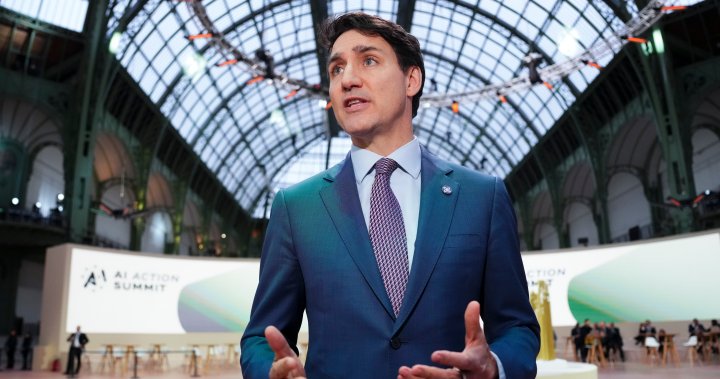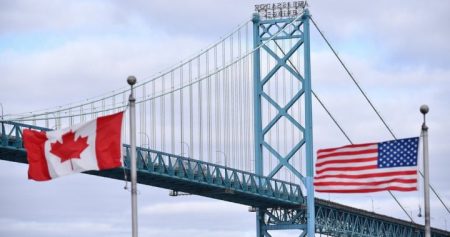Canada and the U.S. Steel and Aluminum Tariffs: A Delicate Diplomatic Dance
Introduction to the Tariff Dispute
The relationship between Canada and the United States has always been one of mutual cooperation and economic interdependence. However, recent developments have introduced a note of tension into this historically harmonious partnership. On February 11, 2025, Prime Minister Justin Trudeau addressed the media in Paris, where he was attending a global summit on artificial intelligence (AI). His remarks were centered around a pressing issue: the tariffs imposed by U.S. President Donald Trump on steel and aluminum imports. Trudeau made it clear that the Canadian government would be working diligently to convince the American administration that these tariffs are detrimental not just to Canada, but to the U.S. as well.
Trudeau and Vance: A Conversation Across the Border
Trudeau’s comments came after a private discussion with U.S. Vice-President JD Vance. Vance, who previously served as a Senator for Ohio, was also in Paris for the AI summit. The two leaders discussed the potential impact of steel tariffs on Ohio, a state that Vance once represented. Ohio, like many parts of Canada, has a significant manufacturing sector that relies heavily on the steel industry. Trudeau emphasized that the tariffs would have far-reaching consequences, affecting not just Canadian businesses and workers, but also American ones. By focusing on the shared economic interests of both nations, Trudeau hoped to appeal to Vance’s understanding of the regional implications of these tariffs.
The Tariffs: A Policy with Broad Implications
President Trump’s executive order, signed on February 11, 2025, introduced a 25% tariff on all steel and aluminum imports into the United States, effective March 12, 2025. This move has sparked concerns among trade experts, economists, and politicians on both sides of the border. While the tariffs are intended to protect American industries, critics argue that they could lead to a trade war, increasing costs for consumers and disrupting supply chains. Trudeau highlighted the “unacceptable” nature of these tariffs, stressing that they are not only harmful to Canada but also counterproductive for the U.S. economy.
Canada’s Response: A Balanced Approach
Trudeau was clear about Canada’s stance during his remarks in Paris. He stated that the Canadian government would work closely with the American administration to illustrate the negative impacts of these tariffs. However, he also emphasized that Canada would not hesitate to take firm action if necessary. When asked about the possibility of imposing reciprocal tariffs, Trudeau expressed hope that such measures would not be required. “We hope it will not come to that,” he said, indicating that diplomacy remains Canada’s preferred approach. Nevertheless, he made it clear that Canada is prepared to defend its interests if the situation escalates.
Building a United Front with International Allies
Canada is not alone in its opposition to the tariffs. Trudeau mentioned that there have been “initial conversations” with international partners and allies, hinting at a coordinated response to the U.S. policy. He also highlighted his upcoming visit to Brussels, where he would meet with European Union leaders. These discussions would likely focus on strategies to address the tariffs and their broader implications for global trade. By seeking to align with other nations affected by the tariffs, Canada aims to present a united front and pressure the U.S. to reconsider its approach.
Conclusion: A Call for Diplomacy and Cooperation
The situation surrounding the steel and aluminum tariffs serves as a reminder of the complexities of international trade and diplomacy. While the tariffs have the potential to strain relations between Canada and the U.S., they also present an opportunity for both nations to work together and find mutually beneficial solutions. Trudeau’s remarks in Paris underscored the importance of dialogue and cooperation in resolving trade disputes. As Canada navigates this challenging landscape, it remains committed to defending its economic interests while maintaining a strong and collaborative relationship with its southern neighbor. The coming weeks will be crucial in determining the outcome of this diplomatic effort, and the world will be watching closely to see how this unfolds.












